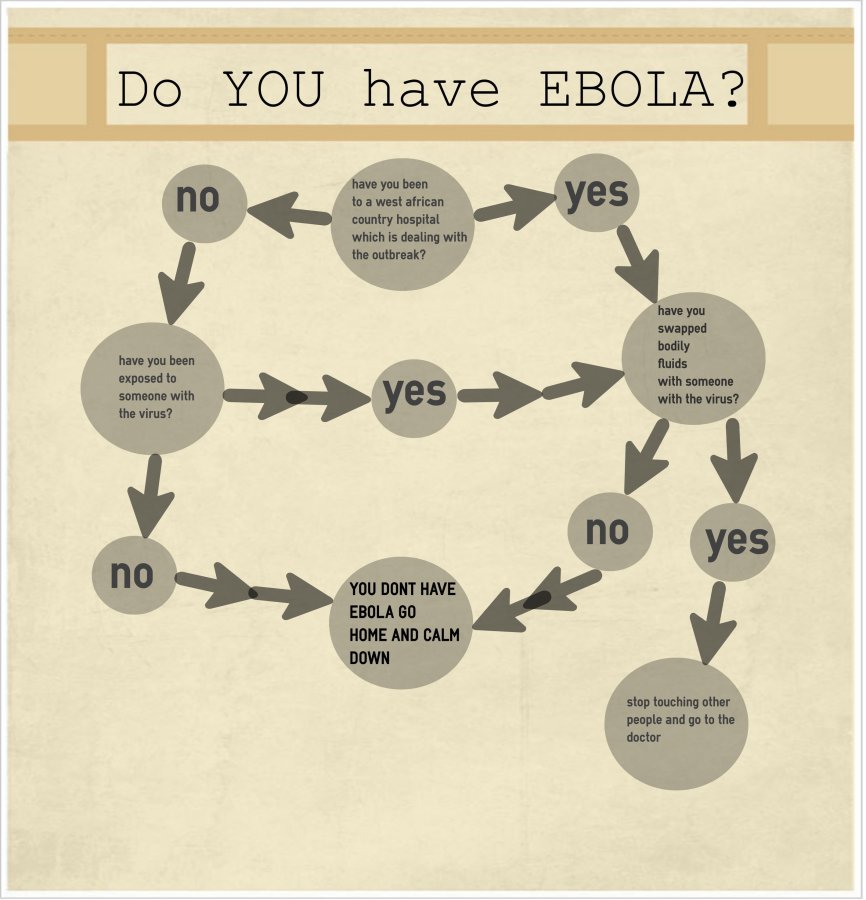Do YOU have Ebola?
What it is and what you can doj
October 29, 2014
There has been a lot of speculation about Ebola since it broke out in Texas in the past couple of weeks from the ridiculous to the dangerously misinformed. In the hallways, creeping into classroom conversation, or inside poor and insensitive jokes cracked in locker rooms is the ignorance we all share about this virus.
Today:
According to the World Health Organization (WHO), Ebola is one of the deadliest viruses on Earth considering the mortality rate of up to 90% (even higher than influenza, which was similar crisis causing virus nearly 100 years ago). This is because, as an article of facts by CNN explains best, “Ebola is extremely infectious but not extremely contagious. It is infectious, because an infinitesimally small amount can cause illness.”
Background:
The first case of Ebola in humans was in central Africa in 1976 in what is now the Democratic Republic of Congo. Its name was after the Ebola River where it was first recognized according to the CNN Library. The largest outbreak before 2014 was the first one in 1976, claiming 431 lives out of 601 total cases. The South China Morning Post reports in their ultra-detailed info graphic that the outbreak of 2014 has claimed 729 lives out of 1, 323 cases.
How To Keep Yourself Safe:
As always, washing your hands regularly, especially after contact with strange animals, don’t play with dead people and animals are all procedures to maintain good health. According to the Centers for Disease Control and Prevention (CDC), the Ebola virus remains in semen for up to 3 months after the illness no longer affects the human host.
Why You Can Probably Chill Out:
Only a person sick from Ebola can transmit the virus to another person. You can’t get Ebola through food, water, or air. Also, CNN reports, “U.S. President Barack Obama hugs Ebola survivor Nina Pham in the Oval Office of the White House on Friday, October 24. Pham, one of two Texas nurses who were diagnosed with the virus, was declared Ebola-free after being treated at a hospital in Bethesda, Maryland.”
Sources:
articles– http://www.cdc.gov/vhf/ebola/index.html
-http://www.cnn.com/2014/04/11/health/ebola-fast-facts/
-http://www.one.org/us/2014/08/06/everything-you-need-to-know-about-ebola/
-http://www.scmp.com/news/world/article/1565340/ebola-outbreaks-explained
